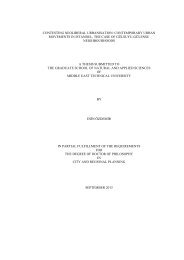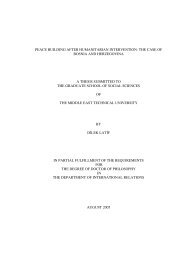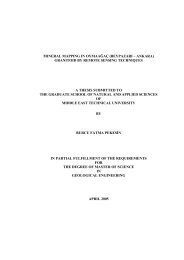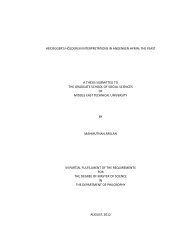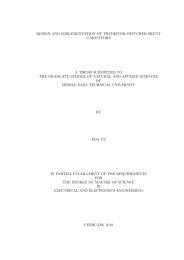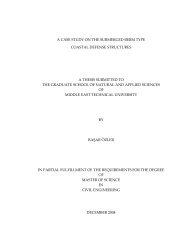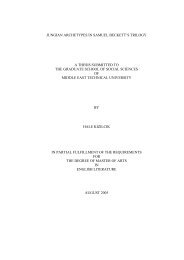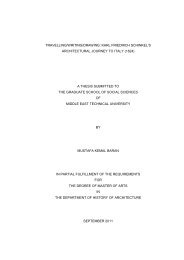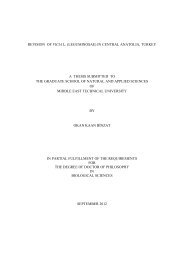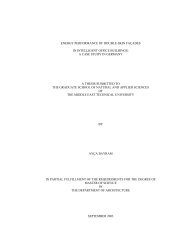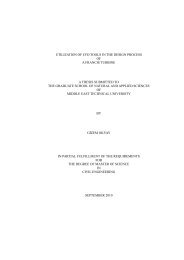View Original - Middle East Technical University
View Original - Middle East Technical University
View Original - Middle East Technical University
You also want an ePaper? Increase the reach of your titles
YUMPU automatically turns print PDFs into web optimized ePapers that Google loves.
In part or whole, a multitude of above arguments has been part of those Marxist<br />
studies which have outright announced that capitalism has indeed changed. However,<br />
as to the political economy of crisis, one study within this controversy has installed a<br />
more austere unanimity or at least a default thinking about the post-war<br />
transformations and the tendencial or otherwise consequences of this particular epoch<br />
for the overall contradictions of the capitalist mode of production until the early<br />
1970s. Many today note that Baran and Sweezy’s book Monopoly Capital(1966) is<br />
simultaneously a paradigmatic underconsumptionist theory of crisis for the epoch of<br />
monopoly capitalism qua Tugan-Baranowsky, Hilferding and Luxemburg and the<br />
ultimate debut of Marxist Keynesianism. Keynes’ theory of effective demand is a<br />
counterpart to Marxist analysis of realisation crisis –this had already littered Sweezy’s<br />
earlier study, The Theory of Capitalist Development(1949). Marxian theory of<br />
concentration and centralisation of capital(monopolisitic structures) were also a chief<br />
part of that analytical effort. But he and Baran had not considered effective<br />
demand/realisation of surplus value together with monopolistic economies before the<br />
mid-1960s and especially not before Steindl’s reproaches in his Maturity and<br />
Stagnation in American Capitalism(1952). For Steindl, in a wage economy, effective<br />
demand is weak; it incrementally is less effective and this infinitely commoves large<br />
corporations. ‘New investment could conceivably pick up the slack’. However, this<br />
would afford a further growth of productive capacity, and ultimately overproduction<br />
of commodities vis-a-vis effective demand. In such an economy of giant firms, price<br />
competition is not fierce(this is an economy of ‘administered prices’). To that effect,<br />
large corporations would be hesitant towards further consumption out of surplus, as a<br />
large segment of their extant productive capacity is already redundant. That is, when<br />
demand is low, monopolistic firms would not lower prices but resort to slack in<br />
production and productive consumption. Steindl is ever so close to Kalecki with his<br />
injunctions on monopoly capitalism and the terms of economic stagnation in such a<br />
system. Kalecki, with his concept of ‘degree of monopoly’(qua price make-up on<br />
chief production costs), was the first economist who considered economic crises in<br />
terms of both monopoly capitalism(capital concentration and centralisation) and wage<br />
economy(i.e. realisation of suprlus value through wage income) and the historical<br />
26



